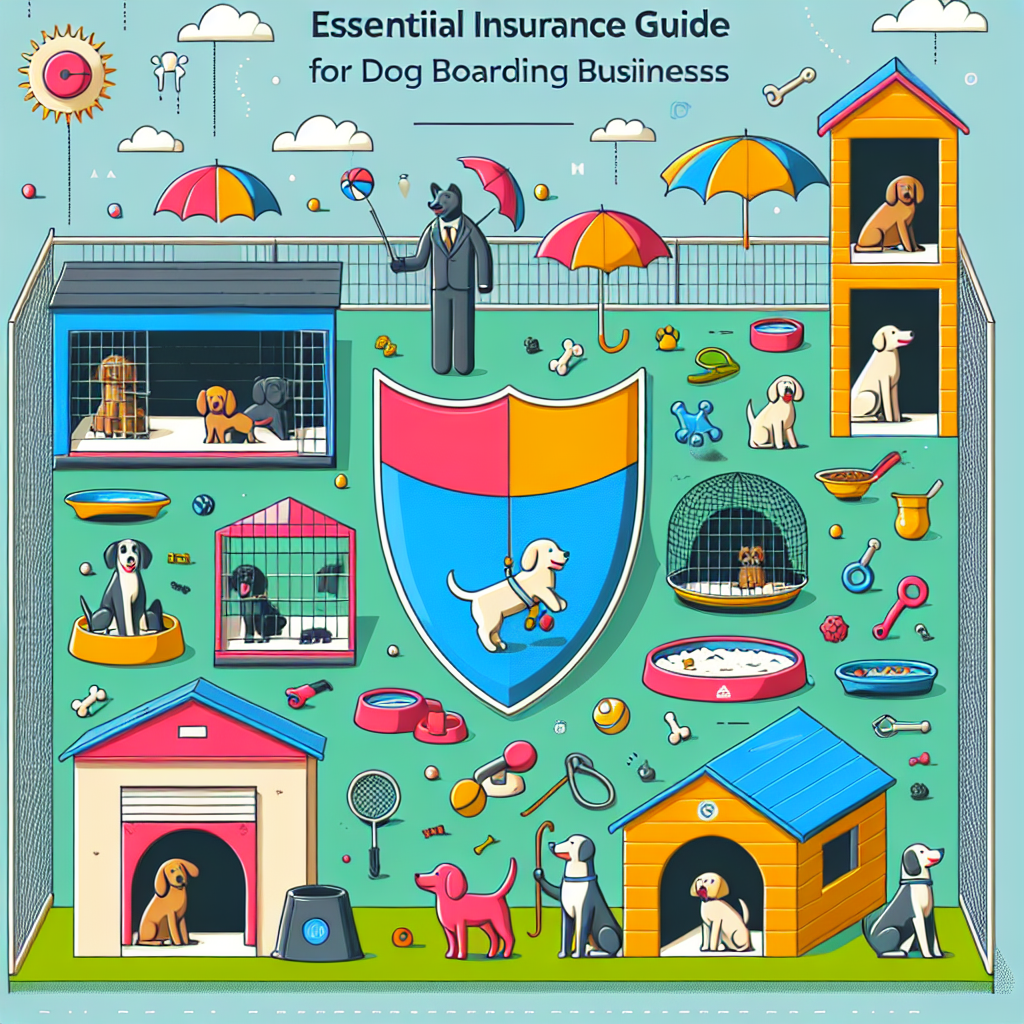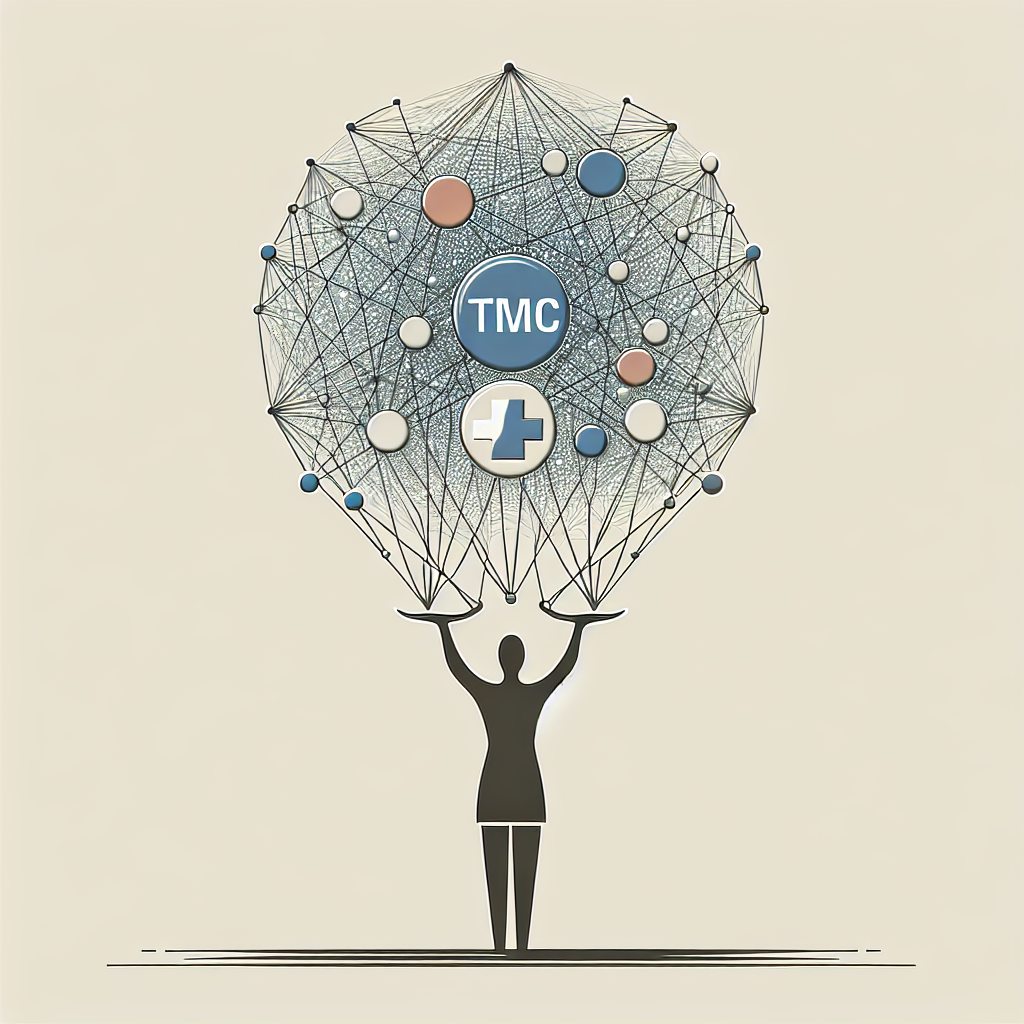Filed under Business Insurance on
Essential Insurance Guide for Dog Boarding Businesses

In the vibrant world of pet care, dog boarding businesses are growing rapidly, providing pet owners with peace of mind while ensuring their furry friends are in good hands. However, running a dog boarding business is not without its risks. Ensuring comprehensive protection through the right insurance is crucial for safeguarding your business against potential liabilities. In this guide, we'll delve into the essential insurance types your dog boarding business should consider, helping you make informed decisions that will protect your investment and uphold your reputation.
Understanding the Need for Insurance in Dog Boarding Businesses
Dogs bring joy and companionship, but they also come with their share of unpredictability. From potential bites to dog escapades and other unforeseen incidents, risks abound. According to recent industry research, the pet care sector, while booming, has seen a noticeable increase in liability claims. This rise underscores the importance of having tailored insurance policies that address the unique challenges faced by dog boarding businesses. With the right insurance, you can focus on providing quality care without the constant worry of potential legal or financial setbacks.
Types of Essential Insurance for Dog Boarding Businesses
1. General Liability Insurance
General liability insurance is a cornerstone policy for any dog boarding business. This insurance provides coverage for accidents or injuries that occur on your premises. For instance, if a visiting customer slips and falls or if a dog injures a visitor, this policy can cover legal fees, medical expenses, and potential settlements. It acts as a financial safety net, protecting your business assets from being drained by costly claims.
2. Professional Liability Insurance
Also known as errors and omissions insurance, professional liability insurance covers negligence claims due to mistakes or failure to perform certain services. In the context of dog boarding, this could include situations where a dog escapes due to staff negligence or if a dog is incorrectly fed or cared for. It covers legal defense costs and any settlements or judgments, ensuring that a simple oversight doesn't result in financial disaster for your business.
3. Commercial Property Insurance
Commercial property insurance safeguards your physical assets, including your building, boarding facilities, and any equipment you use to care for the dogs. Natural disasters, fires, or theft can be devastating, but with commercial property insurance, you can recover more swiftly. This coverage helps repair or replace damaged property, minimizing downtime and helping you resume operations as quickly as possible.
4. Workers’ Compensation Insurance
If you have employees, workers’ compensation insurance is not just advisable; it might be legally required. It covers medical expenses and lost wages if an employee is injured while working. Given the hands-on nature of caring for dogs, which often involves physical tasks, workers’ compensation insurance provides peace of mind for both you and your staff, promoting a safer, more secure working environment.
5. Animal Bailee Insurance
This specialized policy covers injury to or loss of animals while in your care. If a dog is injured while at your facility or is inadvertently lost or stolen, animal bailee insurance provides financial support for veterinary bills, recovery efforts, and more. Given the emotional investment owners have in their pets, having this coverage can be a critical component in maintaining client trust and loyalty.
Factors Influencing Insurance Costs
The cost of insurance for your dog boarding business can vary widely based on several factors. Understanding these will help you better anticipate your insurance expenses and budget accordingly.
Location
Your business's geographic location can affect your insurance premiums. Areas prone to natural disasters or with higher crime rates may result in higher premiums. Proximity to veterinary services and the general safety of the neighborhood can also impact costs.
Business Size and Revenue
The size and scope of your operation, including how many dogs you can accommodate and your annual revenue, influence the cost of insurance. Larger businesses or those with more revenue may face higher premiums given the perceived increased risk.
Claims History
A history of frequent insurance claims can raise your premiums. Insurers view a pattern of claims as indicative of risk, leading to higher costs. Conversely, a spotless history can benefit you when negotiating lower rates.
Coverage Limits and Deductibles
The extent of your coverage and the deductibles you choose also affect premiums. Higher coverage limits naturally result in higher premiums, while opting for higher deductibles can lower monthly costs but increase out-of-pocket expenses in the event of a claim.
Industry Trends and Expert Advice
The pet care industry is evolving, and staying abreast of insurance trends and expert recommendations can guide prudent decisions. One notable trend is the integration of technology to enhance customer experiences and operational efficiencies in dog boarding facilities. Having insurance that includes coverage for data breaches or cybersecurity is becoming increasingly relevant as more businesses rely on digital solutions for reservations, payments, and client interactions.
Experts advise regularly reviewing your insurance policies to ensure they align with current industry standards and business practices. As your business grows or adapts to market demands, your insurance needs may change, necessitating policy updates or additional coverage.
Shopping for the Right Insurance
When seeking insurance for your dog boarding business, a measured approach can make all the difference. Consider these steps to ensure you choose the best policies for your needs:
- Assess Your Risks: Conduct a thorough assessment of potential risks specific to your business. This might involve consulting with industry experts or legal advisors to identify areas of vulnerability.
- Compare Providers: Research and compare multiple insurance providers. Look for those with expertise in the pet care industry and a track record of reliability and customer satisfaction.
- Request Tailored Quotes: Provide detailed information about your operations to insurers, allowing them to tailor quotes based on your unique needs.
- Read the Fine Print: Carefully review policy details, understanding what is covered and any exclusions. Pay attention to limits and policy terms to avoid surprises in the event of a claim.
- Consider Bundled Options: Some insurers offer bundled policies that include multiple types of coverage at a discounted rate. Explore these options to potentially save on premiums while ensuring comprehensive protection.
Maintaining and Reviewing Your Insurance Coverage
Once you've secured insurance, it's essential to maintain an active role in managing your coverage. Here are some best practices:
- Review your policies annually, especially if you undergo significant business changes like expansions or renovations.
- Keep detailed records of all incidents and claims to facilitate smooth communication with your insurer.
- Stay informed about changes in laws or regulations that might affect your insurance requirements, such as shifts in labor laws or building codes relevant to your facility.
Conclusion
Implementing a comprehensive insurance strategy for your dog boarding business is not merely a regulatory box to tick—it's a critical investment in your business's security and longevity. As you embrace the joy and challenges of caring for pets, the right insurance will allow you to focus on growth and innovation, confident in the knowledge that you're well-protected against the unforeseen. By diligently choosing and managing your insurance policies, you secure peace of mind for yourself, your employees, and your clients, ensuring your business continues to thrive in the competitive pet care landscape.





